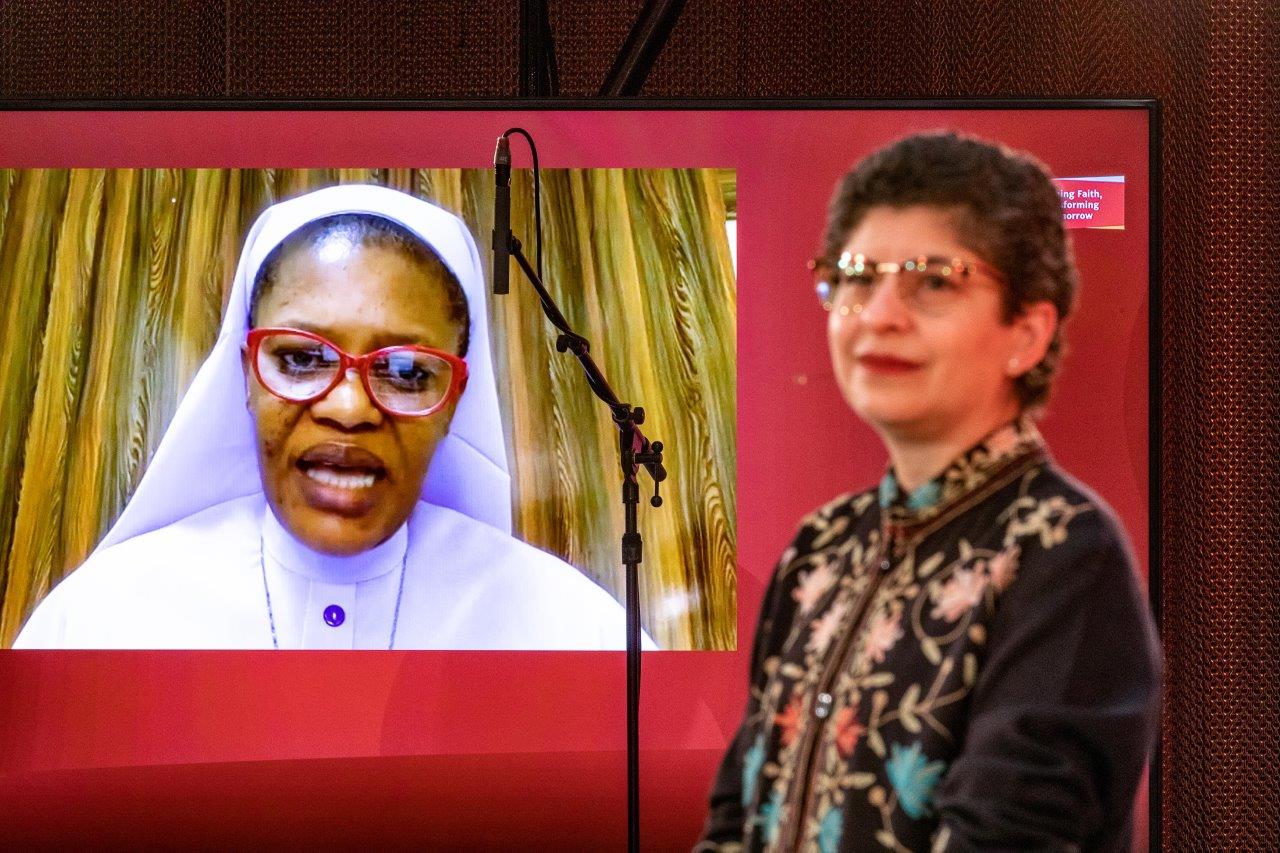Breaking Silences: Women’s Voices Interrupt a Global Narrative of Terror
20201111The world is in chaos: divisive rhetoric is tweeted from the most powerful political accounts. Nearly 80 million people displaced. We attempt to solve conflicts knowing that women are indispensable actors in peacebuilding, but still they only make up 13 percent of peace negotiators.
Amid such chaos, the voices of women of faith are providing a clear path forward in the opening days of the 1st Online Assembly on Women, Faith, and Diplomacy (10-13 Nov).
Political and institutional leaders spoke about their own faiths and openly pointed to the myriad ways religion has failed to promote peace. Dr. Mary McAleese, former President of Ireland who led the peace process after the Irish civil war under the slogan “Building Bridges,” spoke of her political role in a pastoral light. She said, “Faith will be lucky if it survives religion. As a peacebuilder, I was able to remain ‘religious’ because of my commitment to ‘faith.’ The peace process in [Ireland] was a chance to redeem Christianity after its failure during the Troubles.”
Jama Egal, national peacebuilding coordinator of Somali government, spoke to his experience brokering peace in one of the most challenging contexts, reflecting that, “Religion is sometimes manipulated for selfish and political purposes. But faith inspires me – it supports me to be patient and forgiving – to keep persevering when the challenges seem impossible.”
Düzen Tekkal, German journalist and activist of Kurdish-Yazidi descent, said that women of faith leading interreligiously are role models for those trying to overcome terrorism, as Nadia Murad did. “The enemies of women in Iraq and Syria are the same enemies that we face in Europe – they disregard human rights. Women’s own experiences of discrimination within their faiths and their commitment to respect and understanding through interfaith cooperation position them as the leaders the world needs to overcome terror and violence in the name of religion,” she said in a session with David Eades of BBC.
Yesterday, the Opening Ceremony saw representatives of international institutions including Chancellor Angela Merkel, UN Secretary General António Guterres, and leaders from the UN Refugee Agency (UNHCR), the UN Population Fund (UNFPA), and the Islamic World Educational, Scientific and Cultural Organization (ISESCO), universally upholding the value of a faith-based collaboration. Irmgard-Maria Fellner of the Federal Foreign Office of Germany even noted that interreligious collaboration seems to be the most promising approach to gender equality and peacebuilding because it inherently starts with a respect for differences.
###
